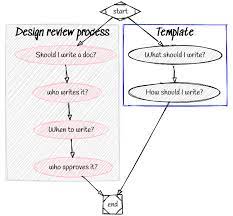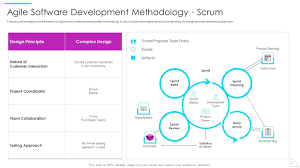Navigating Success: The Power of Consultancy in Business
The Importance of Consultancy in Business
Consultancy plays a crucial role in the success of businesses across various industries. Whether it’s a startup looking for guidance on market entry strategies or a well-established corporation seeking to streamline its operations, consulting services offer valuable insights and expertise that can make a significant difference.
Benefits of Consultancy
One of the key benefits of consultancy is the access to specialized knowledge and skills that may not be readily available within the organization. Consultants bring a fresh perspective and experience from working with different clients, allowing them to offer innovative solutions to complex problems.
Consultants also provide an objective viewpoint, free from internal biases or politics. This impartiality enables them to identify areas for improvement and implement changes without being influenced by internal dynamics.
Types of Consultancy Services
Consultancy services come in various forms, including:
- Management consultancy: focusing on strategic planning, organizational structure, and performance improvement.
- IT consultancy: assisting with technology adoption, system integration, and cybersecurity.
- Financial consultancy: offering expertise in financial planning, risk management, and investment strategies.
- HR consultancy: providing support in recruitment, training, and employee development.
Choosing the Right Consultant
When selecting a consultant for your business needs, it’s essential to consider their experience, track record, and compatibility with your organization’s culture. A good consultant should be able to communicate effectively, understand your goals, and tailor their approach to meet your specific requirements.
Conclusion
In conclusion, consultancy is a valuable resource for businesses seeking expert advice and guidance in achieving their objectives. By leveraging the knowledge and skills of consultants, organizations can overcome challenges, drive growth, and stay competitive in today’s dynamic business environment.
Understanding Consultancy: Key Questions Answered
- What is the meaning of the word consultancy?
- What does a consultancy do?
- Which consultancy means?
- What is the difference between consulting and consultancy?
- What is consultancy services do?
What is the meaning of the word consultancy?
Consultancy, in the context of business and professional services, refers to the practice of providing expert advice and guidance to individuals or organizations seeking assistance in a particular area. A consultancy typically involves a consultant or a team of consultants who possess specialized knowledge, skills, and experience relevant to the client’s needs. The primary goal of consultancy is to help clients solve problems, make informed decisions, improve performance, and achieve their desired outcomes through strategic planning, analysis, and implementation of tailored solutions. Ultimately, consultancy serves as a valuable resource for individuals and businesses looking to leverage external expertise to address challenges and maximize opportunities in their respective fields.
What does a consultancy do?
A consultancy provides professional advice and expertise to individuals, businesses, or organizations seeking assistance in various areas. Consultants analyze the client’s needs, identify challenges or opportunities, and offer tailored solutions to help them achieve their goals. Depending on the consultancy’s specialization, services may include strategic planning, process optimization, technology implementation, financial analysis, or organizational restructuring. Ultimately, consultancies aim to add value by sharing their knowledge and experience to support clients in making informed decisions and driving positive change within their operations.
Which consultancy means?
Consultancy refers to the practice of providing expert advice and guidance in a particular field or industry. Consultants are professionals who offer their specialized knowledge and skills to help individuals, businesses, or organizations solve problems, make informed decisions, and improve performance. The essence of consultancy lies in offering objective insights, innovative solutions, and strategic recommendations tailored to meet the specific needs and goals of the client. By engaging with consultants, individuals and businesses can benefit from external perspectives, expertise, and experience that can lead to enhanced efficiency, effectiveness, and success in their endeavors.
What is the difference between consulting and consultancy?
When it comes to the terms “consulting” and “consultancy,” the main difference lies in their usage and regional preferences. In general, “consulting” is more commonly used in American English to refer to the practice of providing expert advice or guidance on specific issues or projects. On the other hand, “consultancy” is often favored in British English and other Commonwealth countries as a broader term encompassing the professional services provided by consultants. While the distinction may seem subtle, both terms essentially refer to the same concept of offering specialized expertise to help individuals or organizations achieve their goals effectively.
What is consultancy services do?
Consultancy services encompass a wide range of expertise and support aimed at helping businesses address specific challenges, achieve their goals, and optimize their operations. Consultants bring specialized knowledge, skills, and experience to the table, offering strategic advice, innovative solutions, and practical recommendations tailored to the unique needs of each client. Whether it’s management consultancy focusing on organizational efficiency, IT consultancy assisting with technology implementation, or financial consultancy providing insights into investment strategies, consultancy services play a vital role in guiding businesses towards success by providing objective perspectives and expert guidance.









